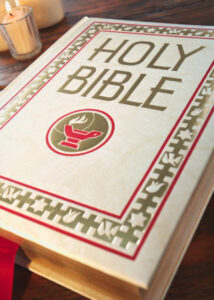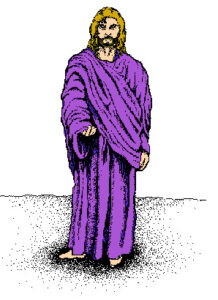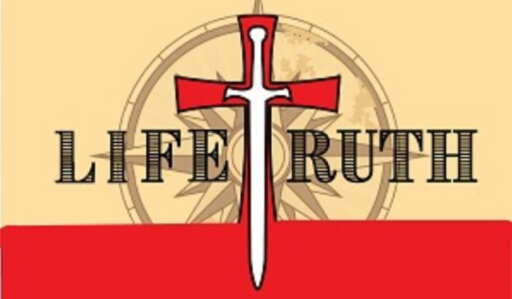Continuing to talk with the healed blind man who was cast out of the temple, Jesus had revealed his credentials. He described himself as the good shepherd, compared to what thieves and robbers do. He hints that the recent generation of religious leaders is these robbers. However, even well-intended shepherds who care for the flock might at best be known as hired hands.

John 10:12-21
The hireling, or wage worker. He’s here for the money, not danger. He may care about sheep, but only to a point. When he sees or experiences the situation of an approaching wolf. He flees. He abandons the sheep. He is a coward. The wolf takes what he wants. Easy pickings. The sheep that remain scatter, run for shelter, and panic.
The hired hand is only here for the pay, to Punch a timeclock and go home.
The good shepherd has a mutual relationship with his sheep. It’s a knowledge of ownership.

He describes a mutual relationship that mirrors the one between Jesus and God. He talks about his life or soul. The soul of Jesus, the good shepherd, the son, a messiah is placed on his sheep. To lay down, or place is to set, establish, ordained. He does this for his sheep. Over, or upon his sheep. The blood of the shepherd covers and makes the sheep look exactly like him.
Sheep in the fold is the nation of Israel. When Jesus speaks of other sheep, he means all the other nations. Therefore, the flock is all the sheep, unified under him. What unifies them? How do sheep know they are in his flock and should follow him? His voice. Any sheep, regardless of where they are, recognize his voice when he calls. Despite where his sheep are, they are unified under him. They are bought by and covered with his blood.
Jesus claims he is loved by the Father because of his unique capability to pay for all the sins of all humanity. He voluntarily lays down his life. No one can take it from him. Since he has lived in and of himself, he also takes it up again. He sets life aside, then he picks it up.
If anyone can love, he can. If anyone can judge, he can. At the end of time, if anyone can break the seven seals mentioned in Revelation, he can.
No one, not a single person, not anybody can take life from Jesus. He will give it up, but only under his terms and when he’s ready.
The word translated as “authority, or power,” is where we get the word exertion. It’s not a dormant power or one that sits idle. It’s a power that is in full exercise mode. He has the power to set his life aside or take it back at will. This is by command of God. Good designed it this way.
division, or a schism. ripped apart the religious leaders. Their beliefs were shattered at hearing his words. Jesus may have been directing his words to the formerly blind man, or his disciples, but the religious leaders were in earshot to hear as well.
many said… not all, but many, “he has a demon. He’s a maniac.” Why listen. This is fake news. Misinformation, because we say so.
The ones on the other side of the schism said, “These aren’t demonic words.” They recognized his action of healing the blind man is not daemonic. His words may be hard to take, and upset well-established thought. However, they could see that if the words were hard to take, let the actions speak.

Credits
Thanks to the recorded comments from J Vernon McGee. His ministry and daily bible study live on through Through the Bible Ministries (ttb.org)
Scriptures in the show notes and episode are quoted from the King James Version, except when read by Keith, then it’s the NASB.
Scripture quotations are from The ESV® Bible (The Holy Bible, English Standard Version®), copyright © 2001 by Crossway, a publishing ministry of Good News Publishers. Used by permission. All rights reserved.”
“Scripture is taken from the NEW AMERICAN STANDARD BIBLE®,
Copyright © 1960,1962,1963,1968,1971,1972,1973,1975,1977,1995
by The Lockman Foundation. Used by permission.”
Podcast: Play in new window | Download (Duration: 34:50 — 31.9MB)
Subscribe: Apple Podcasts | Amazon Music | Podchaser | RSS | More

